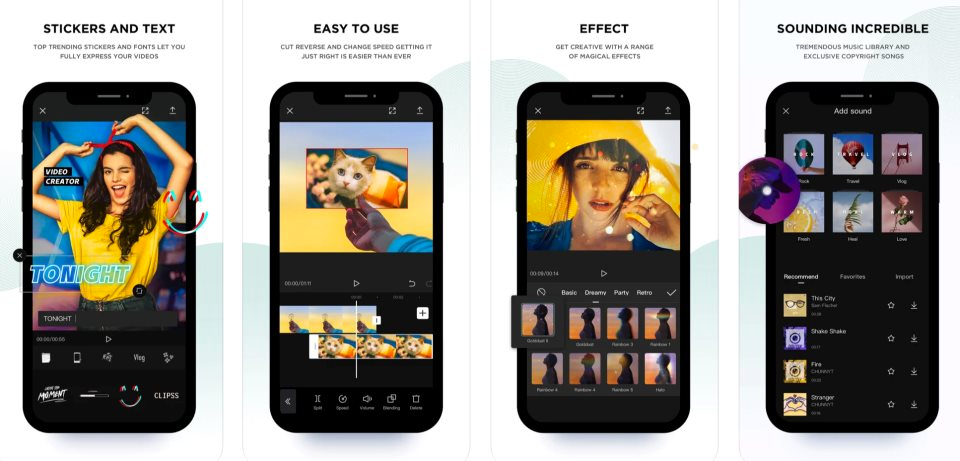The US wants to ban Tiktok but does not know that people are addicted to applications from China
- Tram Ho
In recent years, ByteDance’s TikTok has become the focus of US lawmakers. The evidence is that the CEO of this short video application in March had to testify before the US Congress to speak out against previous allegations related to privacy and user safety.
Concerns surrounding ByteDance largely stem from national security laws that give the Chinese government access to vast amounts of information. US lawmakers fear the Chinese government could access any information collected by China-based app companies, from email addresses, preferences to driver’s licenses.
Despite all that, Chinese apps are still booming in the US, such as shopping app Temu owned by China-based PDD Holdings. As of the end of May, it holds the 2nd place on the App Store in the top free apps.

Meanwhile, ByteDance-owned CapCut and TikTok apps hold the 4th and 5th spots on the App Store rankings. Chinese fast-fashion brand Shein holds the 14th spot. Between late March and early April, following the TikTok CEO’s hearing before Congress, ByteDance’s Lemon8 also hit nearly 1 million downloads in the US.
However, these apps are sharing some features that worry the US government. Like TikTok, they also collect user information, can analyze interest trends, and use algorithms to target people. Luckily, the popularity of these apps in the US isn’t really as great as TikTok’s, so it doesn’t get too deep.
For comparison, while TikTok has had 415 million downloads in the US since launch, CapCut has 99 million, Temu 67 million and Lemon8 1.2 million, according to Apptopia. Only Shein surpassed TikTok in terms of downloads (855 million), even though the app launched a lot earlier in the US in 2014.
“ An app with 1,000 or 1 million users in the US will not pose a universal cybersecurity threat,” said Lindsay Gorman, senior fellow for emerging technologies at the German Marshall Fund Security Alliance. variable like an app with 100 million users ”.
According to Gorman, the US when considering the threat posed by TikTok needs to develop a framework to assess the relative risk of Chinese apps. Scale and virality are two of the criteria.

ByteDance-owned CapCut holds the 4th spot on the App Store chart.
Still, while waiting for a framework to come out, Americans continue to use Chinese apps. According to Jasmine Enberg, principal social media analyst at Insider Intelligence, ” Among the most downloaded apps is always China. The early development of Lemon8 shows that demand for Chinese apps in the US is still growing .”
For e-commerce applications, the risk of spreading harmful misinformation is not as high as that of social media services. An e-commerce platform like Temu or Shein wouldn’t be able to spread the word using a video app like TikTok.
“ The connection between China and some apps is not so obvious to consumers. They don’t really think about where the apps they’re using come from .”
However, the US has found cause for concern. A recent CNN report found that Temu’s sister company, Pinduoduo, a popular shopping app in China, contained malware. Research staff at the US-China Economic and Security Review Commission found out when assessing Temu’s data risk. Shein was also accused by Shut Down Shein – a group that describes itself as an alliance of American individuals, brands and human rights organizations – for illegally collecting user data.
“I understand Americans like the convenience of Chinese e-commerce and innovative tools, but people need to take into account the possibility that these companies will eventually have to comply with Chinese demands.” US Senate Intelligence Committee Chairman Mark Warner said.
Previously, software in Pinduoduo was also found to be able to take advantage of vulnerabilities in Android phones, allowing the app to bypass user security permissions, access private messages, modify settings, view data data from other applications and prevent the uninstall process. Google calls this a “malicious app”, then urges users to remove Pinduoduo.

According to analysis by Kevin Reed, director of information security at cybersecurity company Acronis, Pinduoduo requires users up to 83 permissions, including access to biometrics, Bluetooth and information about Wifi networks. “ Some of the requests seem unusual for an e-commerce app ,” says Reed.
According to CNBC, Pinduoduo is an e-commerce app based in China that sells everything from groceries to clothing. This is the main “pet” of PDD Holdings, the parent company of Temu.
“ There is no need to store biometric data on an e-commerce website or app. Personally, I don’t want my personal data to be stored anywhere other than my device ,” said Sean Duca, vice president and head of security for Asia Pacific and Japan at security firm. Cybersecurity Palo Alto Networks said. “ Biometrics are extremely valuable. It cannot be simply changed like a password ”.
In response to this situation, in March, Republican senator John Thune drafted a bill called Limiting Security Threats to Information and Communications Technology (RESTRICT). It is expected to be able to comprehensively address threats from foreign technology, such as TikTok.
Via: CNBC
Source : Genk
